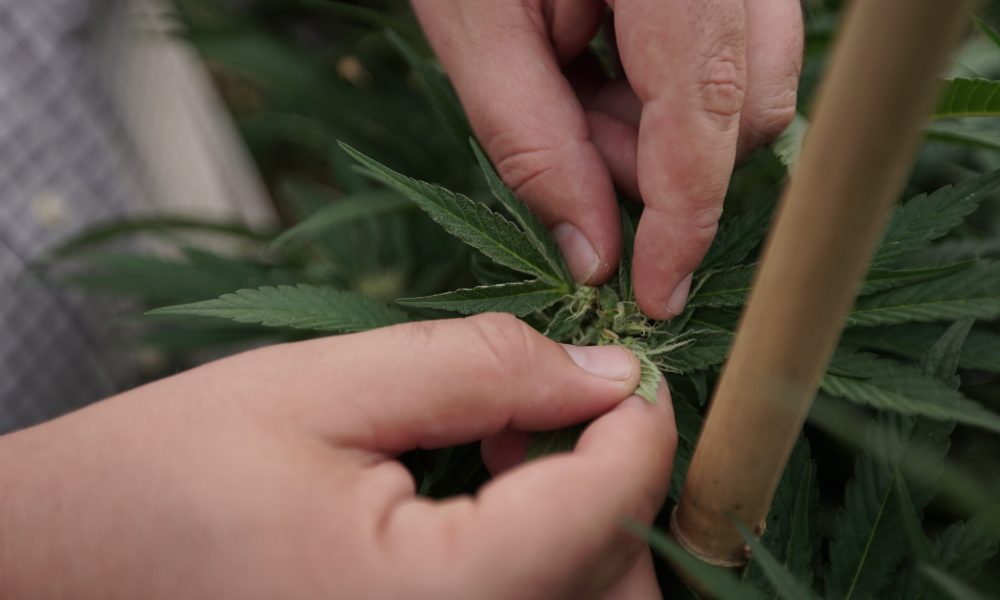“We’re ready to go. We already have the facilities. We have everything in place, and we absolutely will be able to supply the market.”
By Alander Rocha, Alabama Reflector
The Alabama Medical Cannabis Commission (AMCC) Tuesday awarded five integrated facilities licenses, wrapping up its third attempt this year to award licenses for medical cannabis production.
The awards for the facilities—which can grow, process and sell medical cannabis onsite—followed four days of presentations last week from applicants and months of litigation over the AMCC’s prior methods of evaluating applications.
“[Today] was a milestone for us. Maybe the third time is a charm,” said AMCC Chair Rex Vaughn.
The five integrated facilities awarded a license were Trulieve AL, based in Lowndes County; Sustainable Alabama, in Lee County; Wagon Trail Med-Serv, based in Cullman County; Flowerwood Medical Cannabis, in Loxley, in Baldwin County; and Specialty Medical Products of Alabama, based in Wetumpka, in Elmore County.
The commission awarded 20 licenses for cultivating, processing, dispensing, transporting and testing cannabis on December 1.
The commission identified 33 candidates for the five licenses. Thirty-eight initially applied but two companies withdrew their application. Three were disqualified for failure to address pass/fail items on their applications.
Ray French, chief operating officer for Specialty Medical Products of Alabama said the process was nerve-racking but that he was excited to receive a license. His other business, Oscity Labs, already produces CBD edibles and tinctures in an integrated facility.
“We’re ready to go. We already have the facilities. We have everything in place, and we absolutely will be able to supply the market,” he said.
Before being issued a license, successful license recipients must submit the required license fee within 14 days, during which time the commission will conduct site visits. Similarly, those denied a license have a 14-day window to request an investigative hearing before the Commission to reconsider the denial.
The AMCC first awarded licenses in June, but scoring inconsistencies led the commission to void the awards and reevaluate the applications.
A lawsuit alleging the commission violated the Open Meetings Act halted the process again in August. That prompted the commission to rescind the awards a second time, negotiating with claimants on a possible process to move forward with the awards.
The AMCC adopted new licensing and application rules in October after months of legal disputes and stalled settlement negotiations, which set the latest round of applications in motion.
The Alabama Legislature approved a medical cannabis program for the state in 2021, but the bill authorizing the program did not allow licenses to be issued until September 1, 2022. The AMCC began accepting applications late last year.
When the product is available, patients certified by participating physicians will be able to use medical cannabis for 15 conditions, including cancer, chronic pain, depression and Parkinson’s disease. Patients will have to apply for a card to obtain medical cannabis from licensed dispensers.
The law forbids smoking medical cannabis or consuming it in food. It will be available as tablets, capsules, gelatins, oils, gels, creams, suppositories, transdermal patches and inhalable oils or liquids. Cannabis gummies will only be allowed to be peach-flavored.
Alabama Always, which sued the commission several times over the licensing process, was not awarded a license for the third time. Will Somerville, counsel for Alabama Always, previously indicated that the final goal of the lawsuits was for Alabama Always to be awarded a license, but he didn’t say whether the company will continue to pursue legal remedies.
“It’s still open, but we don’t know what we’re going to do,” he said. “I need to talk to my clients. We’ll figure that out going forward.”
This story was first published by Alabama Reflector.
Where Presidential Candidate Donald Trump Stands On Marijuana
Photo courtesy of Chris Wallis // Side Pocket Images.
Read the full article here









